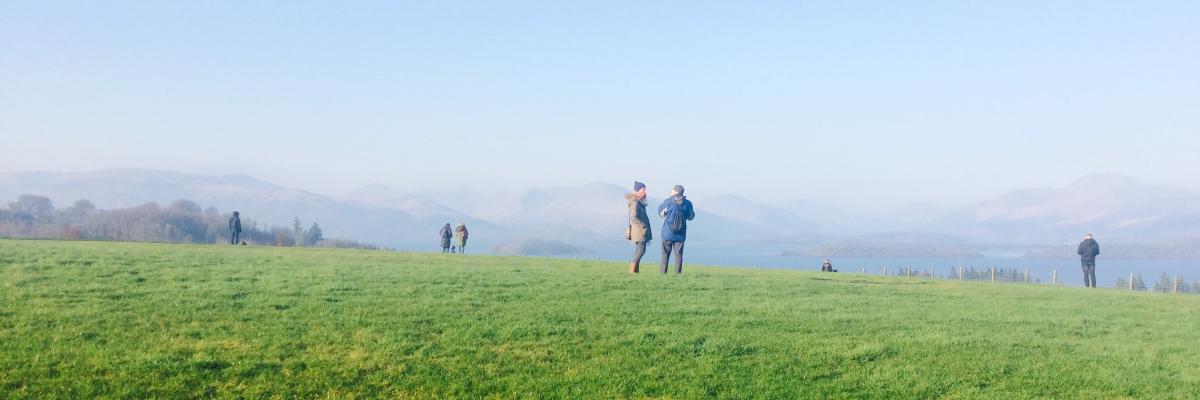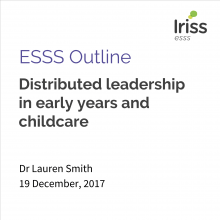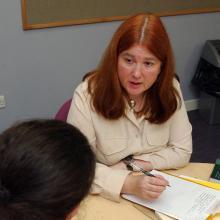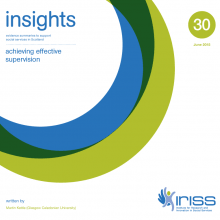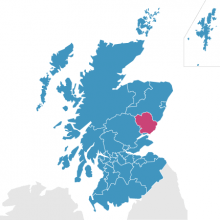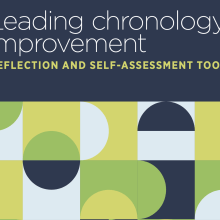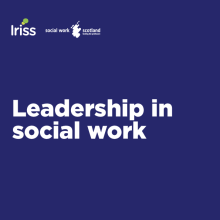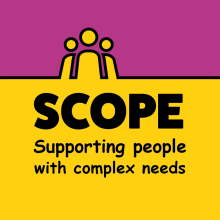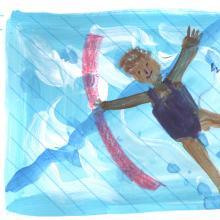This report was written by Robert Rae (3rd Horizons) and Ellen Daly (Iriss). Graphic recordings and photographs by Sarah Ahmad.
Introduction
On 26th January 2017, 12 participants from the Imagining the Future Systems Leadership Community of Practice came together to take part in a follow-up, facilitated, day at Ardoch House, Loch Lomond. Participants were joined at various points of the day by 35 systems leaders undertaking the NHS Leadership Academy's Intersect Programme.
Background
'Imagining the Future' was a programme of work developed by Iriss between 2013-2014 and involved input from over 800 people from the health and social care workforce across Scotland. The work was designed to explore expectations of the health and social care workforce in 2025. It set out different notions of how care might be given and received in a variety of different contexts and considered a number of drivers of change and the relationships between the potential impacts of those drivers. The process used principle component analysis and a progressively more inductive process which produced four plausible futures set in 2025: The Post Welfare World; The New Normal World; Yesterday is Another World; and the Fully Integrated World.
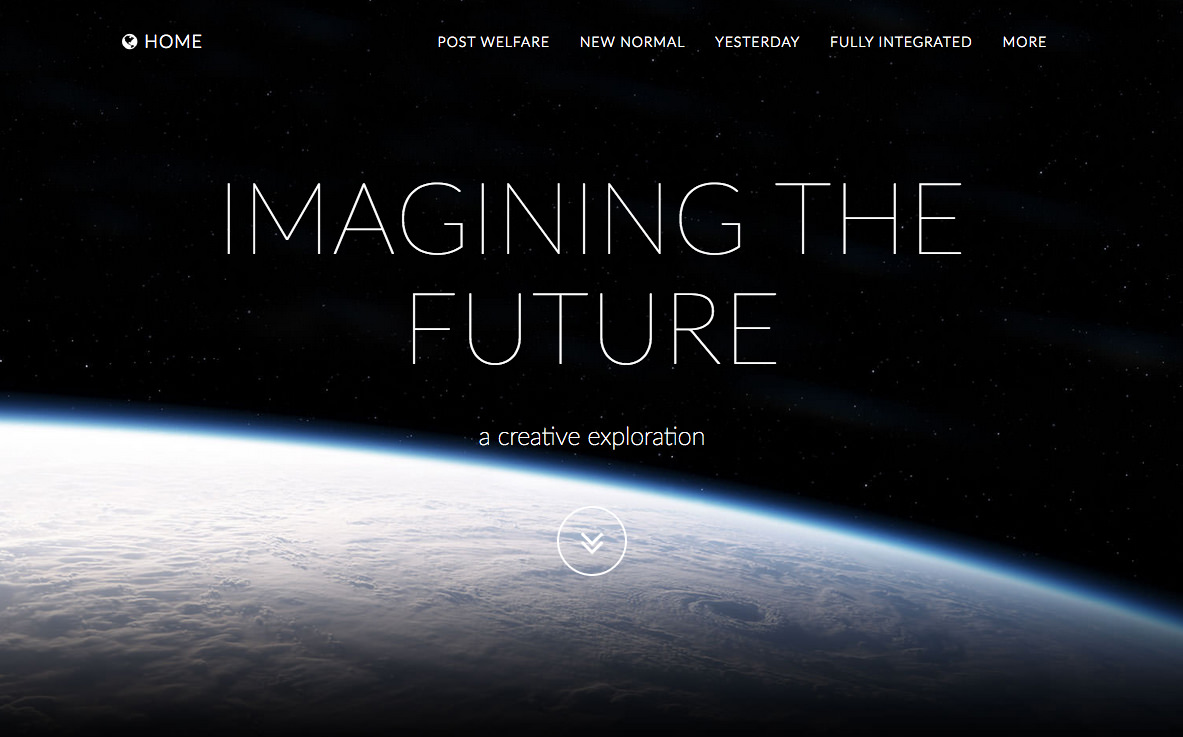
It was recognised early on in the Imagining the Future work that to be able to work in any of the plausible futures, leaders would be required to take up different approaches, styles and possess a number of different skills. Moreover, the leaderships style would not be based on personal leadership or even organisational leadership but would be one characterised by working across organisational boundaries, brokering ideas, knowledge and relationships across the 'system'.
What is systems leadership?
During the past decade, there has been growing interest in applying systems thinking to some of the leadership challenges facing public services in particular. It is against a background of growing demand, reduced resources and complex needs that interest in systems leadership has grown.
The revolution will be improvised is a report on the work of the National System Leadership Programme in England. It offers the following definition of systems leadership:
Systems Leadership is a way of working that shares the burden of leadership to achieve large-scale change across communities. It goes beyond organisational boundaries and extends across staff at all levels, professions and sectors. It involves people using services, and carers, in the design and delivery of those services. Systems Leadership recognises that leadership is not vested in people solely through their authority or position; so it involves sharing leadership with others, coming together on the basis of a shared ambition and working together towards solutions.
In The dawn of system leadership, Peter Senge, draws a distinction between the characteristics of personal, organisational system leadership. 'System leadership – a view from the bridge' offers an overview of system leadership and a helpful six-point reference for system leadership practices. Drawn from the literature, case studies and from real examples, the paper identifies these central characteristics of systems leadership:
- Ways of feeling – about strong personal values
- Ways of perceiving – about listening observing and understanding
- Ways of thinking – about intellectual rigour in analysis and synthesis
- Ways of relating – the conditions that enable and support others
- Ways of doing – behaving in ways that lead to change
- Ways of being – personal qualities that support distributed leadership
Iriss' system leadership programme - 'Leadership for Change'
Based on this thinking, Iriss designed a bespoke systems leadership programme for the sector which formed part of the Scottish Government's Social services in Scotland : a shared vision and strategy 2015-2020. Fifty 'systems leaders' were selected to take part in the programme over three cohorts. The programme was based on a number of key assumptions:
- That all human services organisations (e.g. within social services) can be understood by using a living/social systems frame of thinking rather than a mechanistic frame. In this context there will be multiple, perhaps, contradictory perspectives in relation to planning and problem solving; leaders will be required to take account of values, assumptions and beliefs in order to progress their work (Heifetz), and will need to work creatively across organisational and community boundaries in order to generate a future world which works for the whole system.
- An uncertain and unpredictable future in which change is constant and in which new knowledge is emergent (i.e. knowledge can't be planned; it needs to be discovered). This aspect of living systems shifts our understanding about what is possible and points to the necessity of a different kind of leadership based on learning about what we don't know and on asking questions which surface meaning rather on leadership which 'knows' and provides answers. In the context of social services, this makes planning for the future challenging but also exciting in that any solutions to our current and predicted challenges will need to flex and adapt to the new knowledge and circumstances that constant change brings.
- A complex and interdependent care system. In this context relationships matter and the ability to build relationships, make connections between seemingly irreconcilable perspectives and expand what's possible will be essential leadership practices. Leaders working in this kind of environment will be more able to manage the dilemmas of complex issues if they are able to suspend the desire to fix their problems and instead can work collaboratively, one conversation at a time, to progress their shared aspirations for change.
- That organisations that enable the workforce in Scotland will be receptive to systems leadership.
- These aspects of systems thinking and leadership were built into the programme and explored as both theoretical concepts and practical tools for change.
Outcomes / outputs from the ITF 'Leadership for Change Programme'
Four key things resulted from the Iriss' 'Leadership for Change' programme:
One
Most of the participants were able to apply the learning gained from the programme to effect purposeful change within the system (Imagining the Future Leadership for change: Programme Evaluation for Iriss, Social Enterprise Academy, 2015)
Two
Participants of the three cohorts were encouraged to maintain contact with each other, to support each other as a participant-driven community of system leadership practitioners (CoP). There was of level of success in this.
Three
During the roll out of the Imagining the Future project, which involved over thirty sessions with health and social care staff across Scotland, the core elements of the ITF systems leadership programme were used to support participants to consider, for example:
- How to manage change (the emotional dynamics of change)
- Conflict styles
- Reflective practice
- Political intelligence
- How to take up the role of host and enabler
- Personal authority
- How to extend spheres of control and influence
Four
The ITF systems leaders CoP developed (themselves) a set of core skills and competences that the wider social care sector would need to adopt in developing capacity for systems leadership practices within the social care sector. These included:
- Ability to work across both personal/interpersonal and sector boundaries.
- Participation – engage in collaborative relationships and processes, as well as hierarchical 'telling' relationships and processes.
- Ability to flex and also hold moral dilemmas as a way to make progress on intractable social issues.
- Knowledge brokers - pass information, connect ideas and generate new knowledge. This is characterised by the response 'we must tell xyz about abc'.
- Relationship brokers – create and build relationships where previously people were separate or disconnected.
- Build trust in groups and communities, and model, give and enact trust.
- Maintain and restore humanity to services which can become mechanistic and desensitised to human needs.
- Psychologically adept – deal with and work with different paradigms, mental models and mind-sets.
- Good communication at all levels - connect with people and ideas.
- Appreciative mind-set, not starting with people and issues as a problem, but searching for what works well and what is positive as a way to build constructive energy and change.
- Person-centred rather than service or organisation centred eg whenever a person presents an issue, it is your responsibility to address this rather than pass it on to another person or agency.
- Reflective - good at delaying, reflecting, holding questions for exploration rather than always rushing to action.
- Ability to pose curious, inquiring questions rather than provide solutions.
- Ability to manage ambiguity and uncertainty.
- Need to foster a new relationship between health and social care professionals. Question of how to lead culture change in health and social care which is not either health or social care but reveals what new thing might evolve out of health and social care.
Follow-on day design
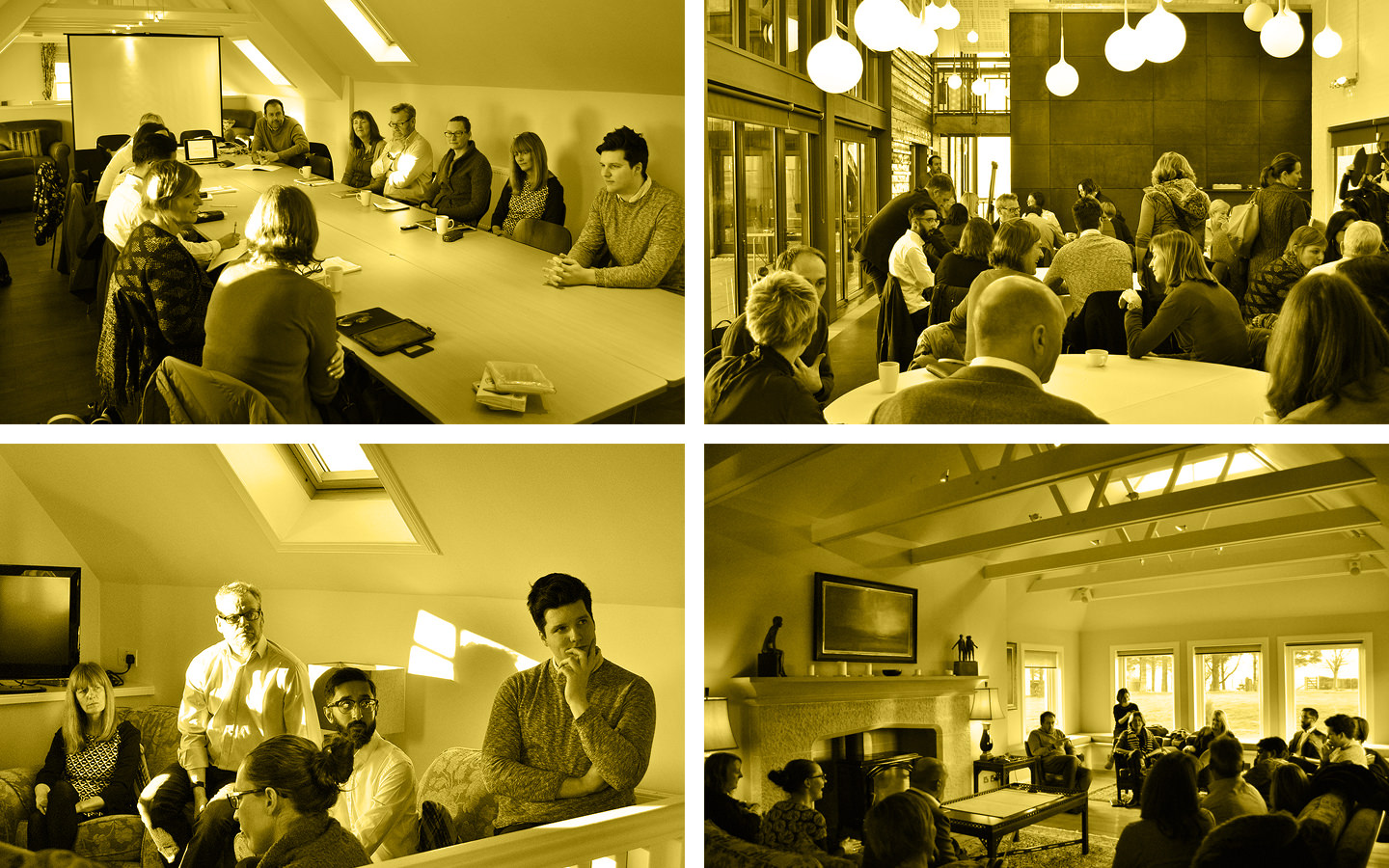
Two years on and the group felt they wanted to come back together at Ardoch House, to:
- reconnect as a group
- refresh themselves on systems leadership practices
- consider how to maintain the Community going forward
- consider a strategic challenge the Community might work on during 2017, using the systems leadership skills and tools they have developed.
The programme for the 26th January was designed to meet those learning outcomes. In particular, an opportunity arose for Iriss to invite the NHS Leadership Academy to come to Ardoch House on the same day to use some of the systems leadership tools with colleagues across systems boundaries. Both the NHS Intersect programme and the ITF day programme ran concurrently with all participants coming together at key points in the day to do some shared work.
Features of the day's programme for the ITF group included:
- Reconnection session: what is systems leadership, again?
- Speed networking session with the NHS Leadership Academy.
- Shared session for both groups: short peer consultancy walk in groups of three or four around Ardoch.
- Forming the ITF 2017 systems leaders shared challenge: developing the BIG, shared strategic challenge for 2017 using systems leaders practices.
- Shared session for both groups: ITF participants to present their BIG challenge idea. Opportunity for smaller group discussions to develop the thinking through systems mapping (this tool was covered in the main ITF systems leadership programme) and plan for NHS Leadership Academy return visit to Scotland in May 2017.
- Review session: The ITF group reflect on the previous session and plan next steps for 2017.

Discussion
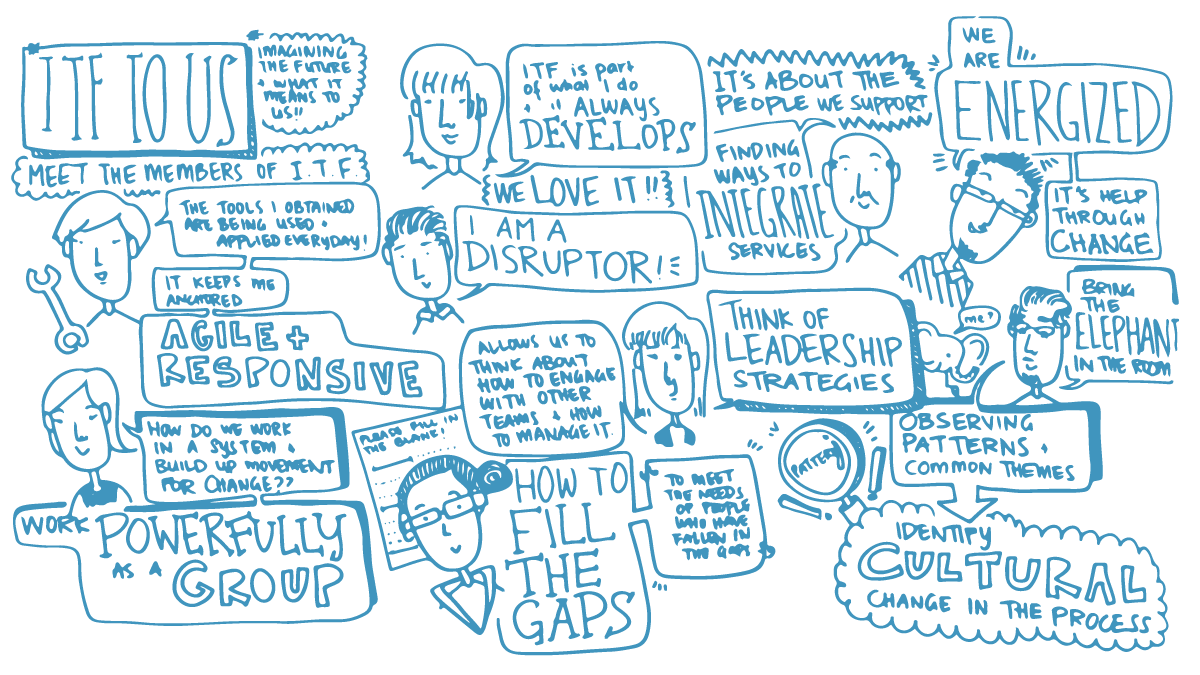
Overall, based on evaluation feedback, participants enjoyed and greatly benefited from the chance to meet together again at Ardoch House and, in quite an honest way, reflect with each other on their systems leadership journeys. For some, this was a chance to explore some existing anxieties and self doubts in a safe, trusted space.
Great to reconnect, touch base, get the 'shot in the arm'. Peer consulting was excellent.
Re-engagement with other members of the ITF group, feeling safe and quite relaxed to be able to contribute effectively.
For most, the session certainly provided the chance to stop, reflect, draw confidence, motivation and inspiration; something they can take back to their jobs:
Able to reflect on how I had already embedded systems leadership with my daily working practice and leadership across the health and social care sector.
Reconnecting with the other leaders who inspire me. I can't put a value on the experience I gain from being in the same room and engaging in discussions with this group.
Reflections
When asked in the evaluation about take-away messages from the day, participants expressed increased confidence, clearer sense of purpose and a re-energised commitment to implementing systems leadership in their contexts:
Confidence in my leadership style within systems leadership
Sense of purpose / tasks, renewed sense of my value and contributions
Using my position to influence change, recognition of using systems leadership all the time
To revisit and explore my understanding of systems leadership, to look at utilising this again to improve my own practice
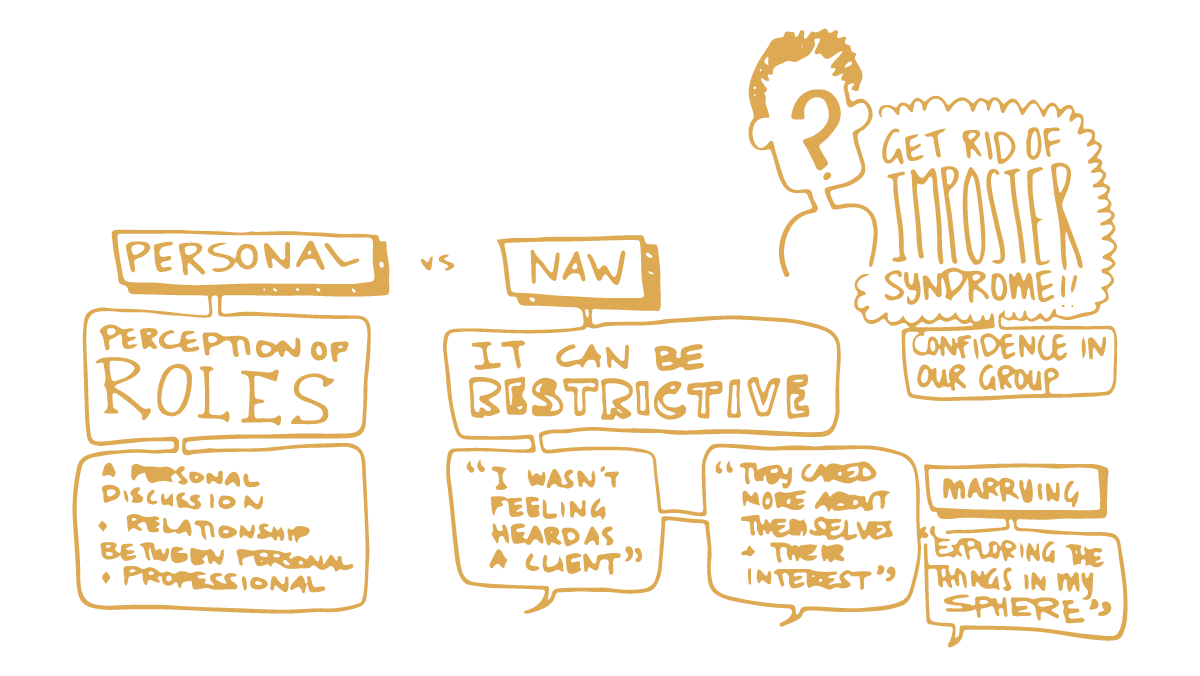
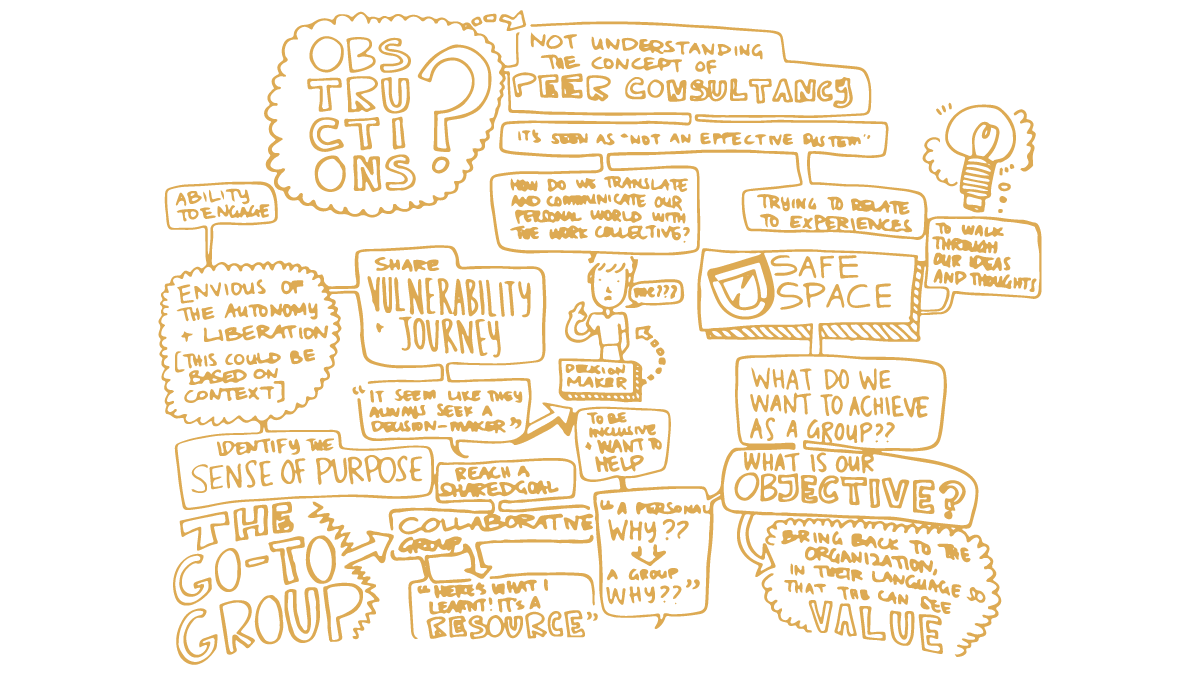
Next Steps for 2017
Participants felt that they had practical experience of developing personal resilience as systems leaders, and that that was something valuable, which others may be interested in. Much of the follow-on day was spent discussing what the ITF CoP offer might be to the wider health and social care sector. For many, understanding things from a systems perspective had helped them to see the value in acting as 'disrupters'; challenging conventional, mechanical thinking. The group considered where this should form part of their offer; a role and a style deliberately taken up by the group.
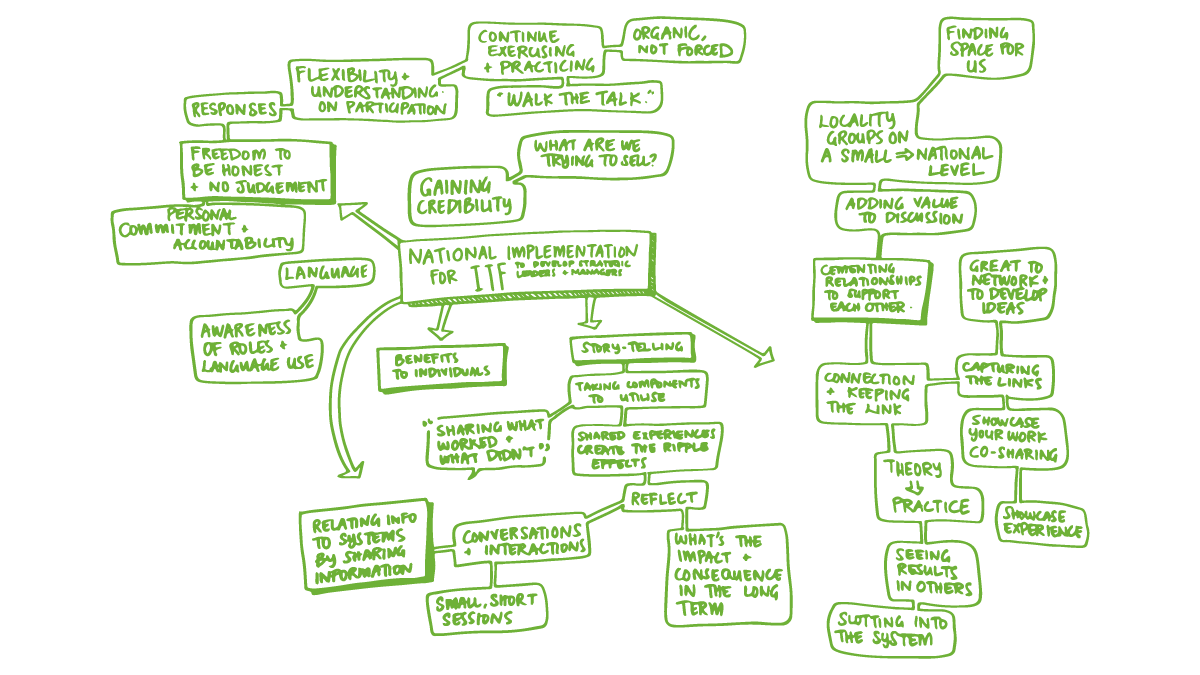
In 2017, participants want to work up a written offer to share systems leadership practices and theory in useful ways, to get alongside others facing complex problems and create a safe space to reflect on how best to make progress. This plan was 'stress tested' with the NHS Intersect group through a presentation and feedback session at Ardoch House. The key points were:
- Help develop strategic leaders and managers using systems leadership approaches
- Relating and sharing information about systems leadership
- Storytelling about personal experiences
- Sharing what worked and what didn't
- Small, short sessions
- How to reflect as a group and as an individual
- Create an environment with freedom to be honest with no judgement
- Flexible approach (not overly bureaucratic), making the offer to anyone in the health and social care workforce but going where there is natural interest and energy
- Invite interested people to join the ITF CoP
- Develop network of practitioners collecting stories of theory into practice
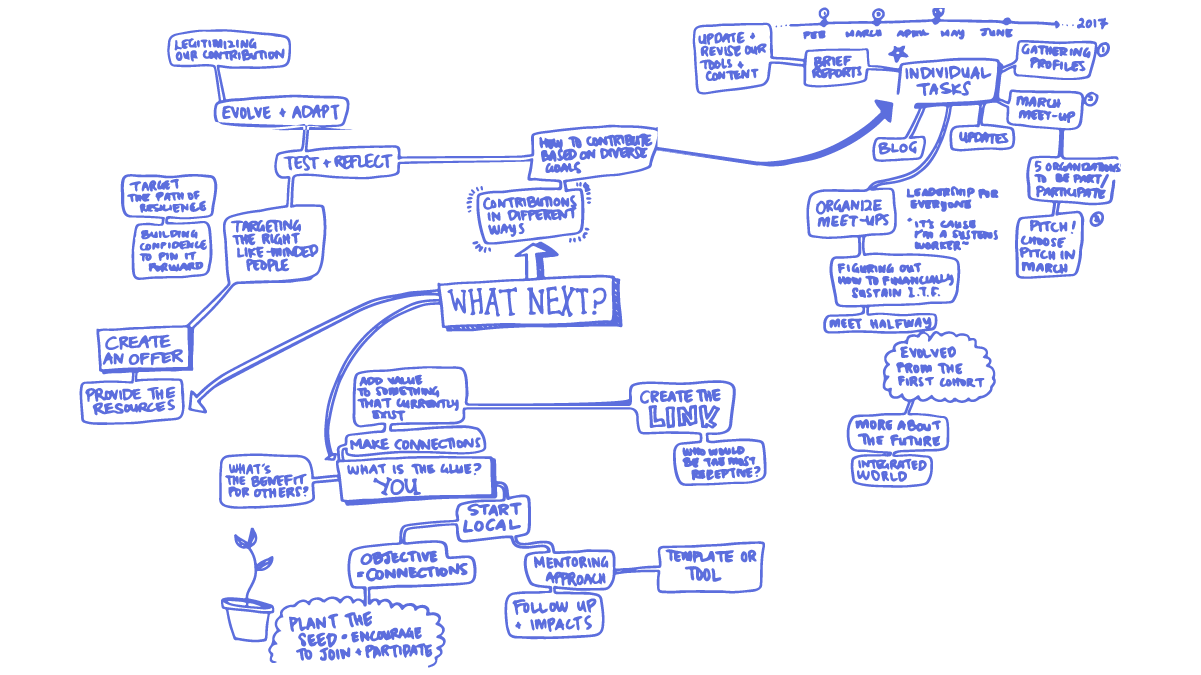
ITF Community of Practice
It was acknowledged that in recent months the CoP had suffered from lack of input from members and, for some, it felt like the CoP was beginning to lose its way. It has been difficult to agree how best to sustain the group into the future. This is something the group has been struggling with for some time. However, participants at the follow-on day at Ardoch House benefited greatly from discussing how best to support each other through the peer consulting exercise with the NHS Intersect Group. A number of practical steps were then identified at the end of the session, which the group will take forward in the coming twelve months:
- Expect each participant to contribute based on the time they have available
- Gather profiles of each participant setting out their interests
- Start and maintain a series of blog posts to sit with other ITF pages on the Iriss website
- Choose five organisations to work with in the coming twelve months
- Update and revise our shared tools and content - as a prospectus
- Test our offer with a few organisations
- Apply our approach to specific complex, intractable issues and reflect what happens
- Meet in March 2017
- Most participants agreed that follow up sessions with the two or three NHS Intersect peer consultants in May would be useful. Robert Rae agreed to take that forward as part of his work with NHS Leadership Academy.
